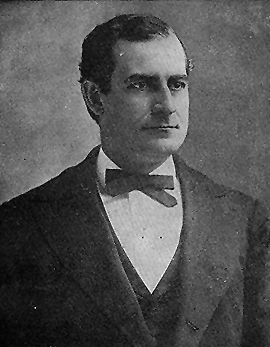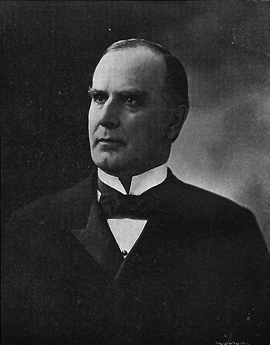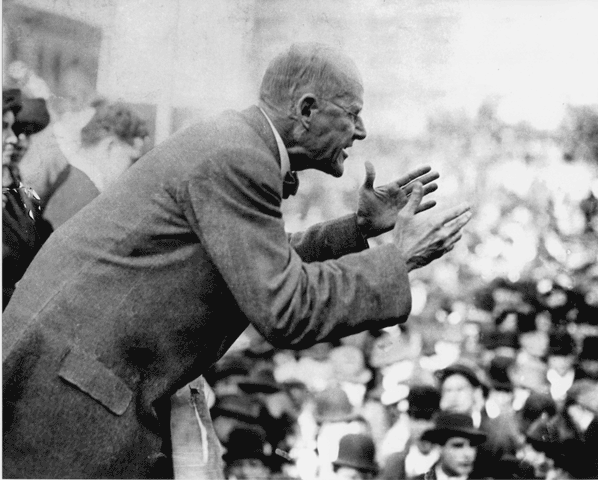TheNoob
Dank Memes
The Peace Act shall be decided by the vote of Congressman Milkwright.
From a coinflip with Harrison as tails and McKinley as heads, Benjamin Harrison has become the nominee of the Unitarian Party.
Seeing a chance to win in this election, the Republican Party has chosen William McKinley as their nominee despite having little to no say in the Congress.
Wanting a chance in this election, the Democratic Party has chosen Garret Hobart as their nominee despite having little to no say in the Congress after the rise of the Populist Party.
The Election of 1896 was the first election to be between 4 contestants.
From a coinflip with Harrison as tails and McKinley as heads, Benjamin Harrison has become the nominee of the Unitarian Party.
Seeing a chance to win in this election, the Republican Party has chosen William McKinley as their nominee despite having little to no say in the Congress.
Wanting a chance in this election, the Democratic Party has chosen Garret Hobart as their nominee despite having little to no say in the Congress after the rise of the Populist Party.
The Election of 1896 was the first election to be between 4 contestants.
Spoiler :
For having four contestants, the winner of each state shall be determined by the spinning of an online spinner with 4 equal sized sections.
Election of 1896
Populist Party
William Jennings Bryan

Unitarian Party
Benjamin Harrison

Republican Party
William McKinley

Democratic Party
Garret Hobart

Bryan: 190
Harrison: 174
McKinley: 54
Hobart: 103

The Election of 1896 was perhaps one of the most turbulent elections in the history of the United States. The Peace vs. War movement marred the United States, giving the Democratic and Republican parties a much needed breath of life and gave them an honest chance within the election. These two right-wing parties gained huge ground within the Midwest and Great Plains, despite the left-wing Populist Party being founded by farmers in the area.
The left-wing seemed to be torn between two very popular parties: the older Unitarian Party and the younger Populist Party. The Unitarian Party did quite well in metropolitan areas such as California, Illinois, and the East Coast, but the Populist Party claimed victory through its gains in the poorer and more rural areas of the South and East Coast (Washington state being the exception).
The Republican Party has been utterly humiliated with the last few election cycles; last place in the most recent election, and no candidate in the last two cycles left the party dazed. They had no major and/or vocal voices in the Congress, and had seemed to be forgotten by the public. Were there any places left for them? They hoped so. Perhaps they could start working on electing some Congressmen from more battleground states.
The Democratic Party wishes to regain their footing by taking in more states for Elections than the usual ones they seemed to carry, such as Louisiana, North Dakota, and Michigan. They were tempted to rethink their appeal to voters in the previous election against Ulysses S. Grant, but with the Populist Party gaining more popularity, they may consider merging with the Republican Party to create a larger, right-wing party to fend off against the major Populist and Unitarians. Of course, these are all ideas, but they are possible.
The Peace vs. War campaign seemed to be coming to an end. A bill was recently proposed to recall the Canadian Requisition Act, and has come down to the very last vote in Congress. The bill has yet to be decided though, and will be either sent to the President's desk or forgotten by the vote of Congressman John Milkwright, the son of former Democratic Congressman Donovan Milkwright of Oregon.
Should the Democratic Party or Republican Party have won the election, the bill may have been sent back to the Congress for a debate and would have needed to gain enough support to overcome a presidential veto. With the victory of the Populist Party, should the bill pass, then it would be signed. This is seen as a vital moment for both the Peace and War campaigns.
Populist Party
William Jennings Bryan

Unitarian Party
Benjamin Harrison

Republican Party
William McKinley

Democratic Party
Garret Hobart

Bryan: 190
Harrison: 174
McKinley: 54
Hobart: 103

The Election of 1896 was perhaps one of the most turbulent elections in the history of the United States. The Peace vs. War movement marred the United States, giving the Democratic and Republican parties a much needed breath of life and gave them an honest chance within the election. These two right-wing parties gained huge ground within the Midwest and Great Plains, despite the left-wing Populist Party being founded by farmers in the area.
The left-wing seemed to be torn between two very popular parties: the older Unitarian Party and the younger Populist Party. The Unitarian Party did quite well in metropolitan areas such as California, Illinois, and the East Coast, but the Populist Party claimed victory through its gains in the poorer and more rural areas of the South and East Coast (Washington state being the exception).
The Republican Party has been utterly humiliated with the last few election cycles; last place in the most recent election, and no candidate in the last two cycles left the party dazed. They had no major and/or vocal voices in the Congress, and had seemed to be forgotten by the public. Were there any places left for them? They hoped so. Perhaps they could start working on electing some Congressmen from more battleground states.
The Democratic Party wishes to regain their footing by taking in more states for Elections than the usual ones they seemed to carry, such as Louisiana, North Dakota, and Michigan. They were tempted to rethink their appeal to voters in the previous election against Ulysses S. Grant, but with the Populist Party gaining more popularity, they may consider merging with the Republican Party to create a larger, right-wing party to fend off against the major Populist and Unitarians. Of course, these are all ideas, but they are possible.
The Peace vs. War campaign seemed to be coming to an end. A bill was recently proposed to recall the Canadian Requisition Act, and has come down to the very last vote in Congress. The bill has yet to be decided though, and will be either sent to the President's desk or forgotten by the vote of Congressman John Milkwright, the son of former Democratic Congressman Donovan Milkwright of Oregon.
Should the Democratic Party or Republican Party have won the election, the bill may have been sent back to the Congress for a debate and would have needed to gain enough support to overcome a presidential veto. With the victory of the Populist Party, should the bill pass, then it would be signed. This is seen as a vital moment for both the Peace and War campaigns.







 This country is far too liberal for the late 1900s
This country is far too liberal for the late 1900s 